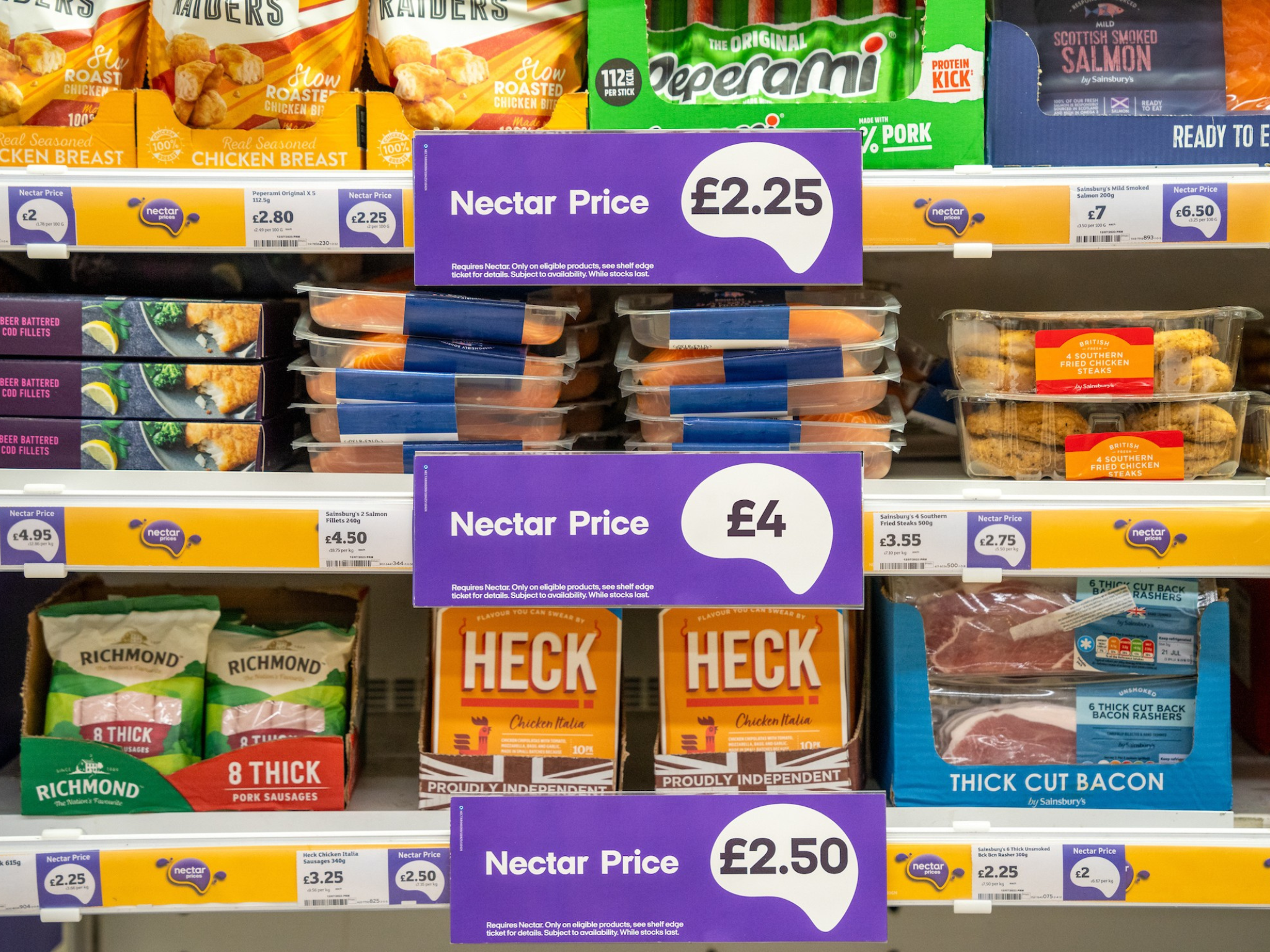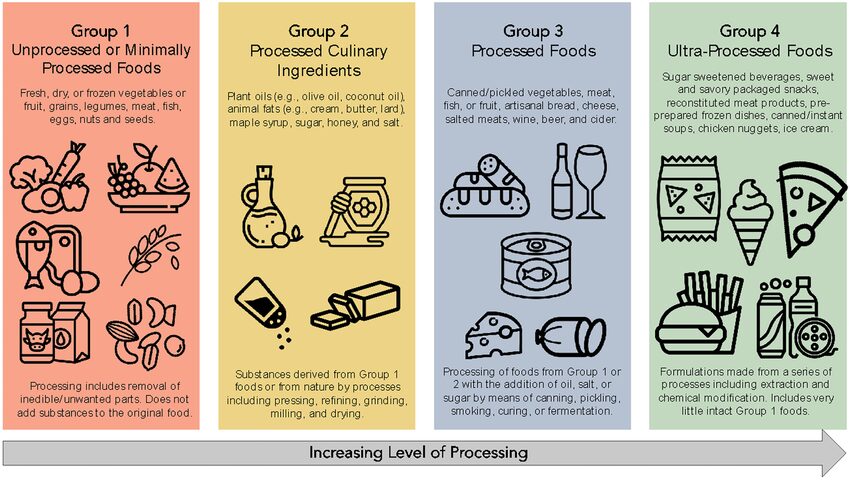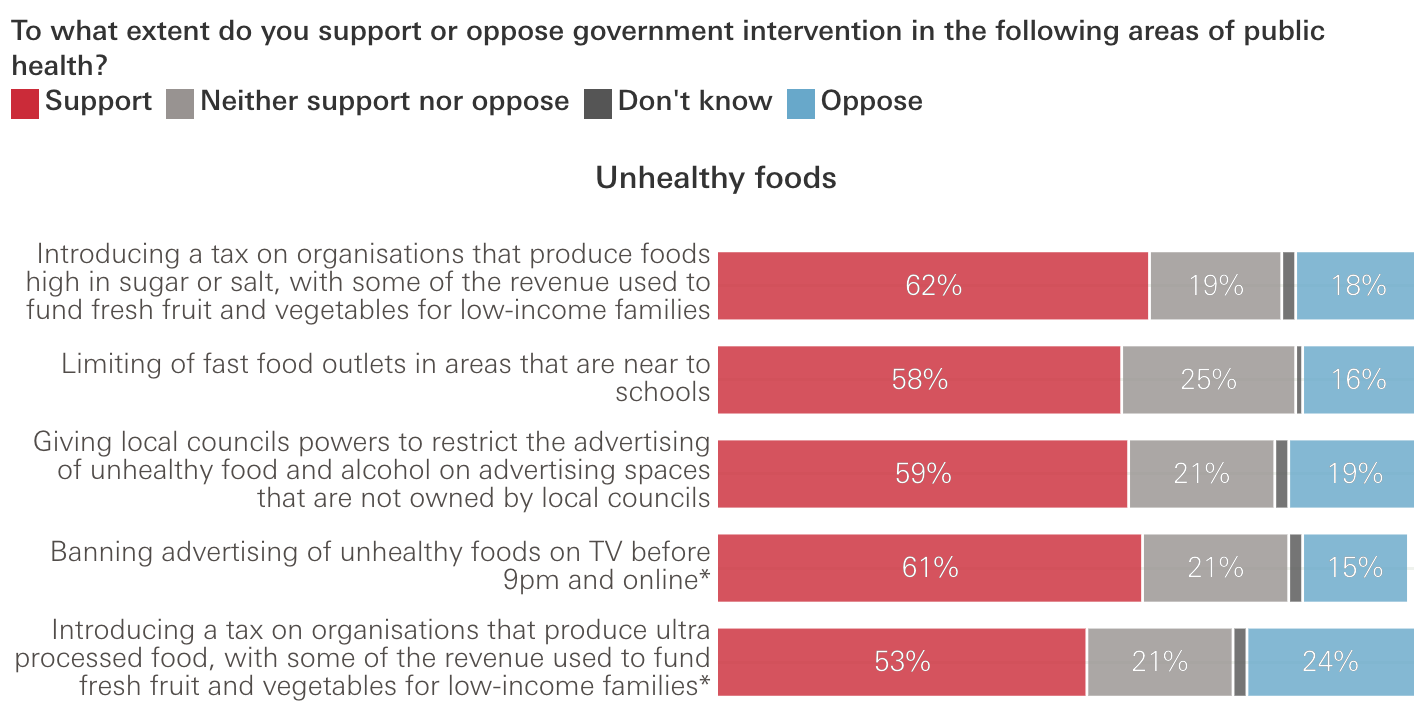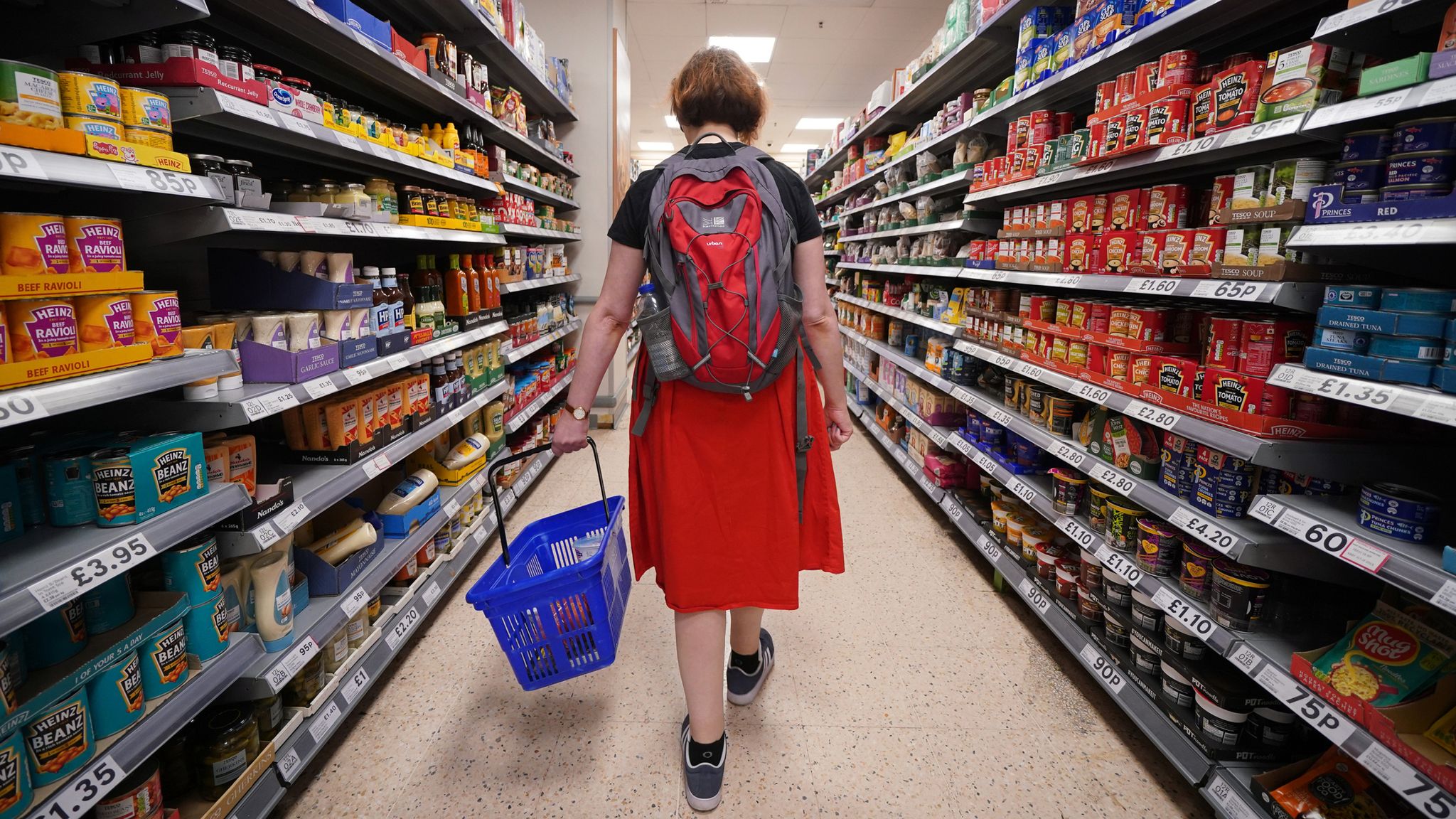
Some of the largest food and drink companies successfully lobbied against the UK government’s push to offer discounts on minimally processed and nutritious products.
This October, the British government is set to roll out regulations that will restrict retailers from putting volume price promotions on foods high in salt, sugar and fat (HFSS). Currently, these products account for 41% of such discounts in the UK.
To support the adoption of the rules, draft guidance in 2023 encouraged supermarkets to shift discounts and product positioning towards “minimally processed and nutritious food”. Think ‘buy one, get one free’ offers or extra loyalty points on fruit, vegetables, whole grains, and more.
The idea was to soften the UK’s reliance on ultra-processed foods (UPFs), which make up 57% of the average British diet, and up to 80% when it comes to children or people with lower incomes. Around two-thirds of calories consumed by adolescents also come from these products.
That guidance has since changed thanks to lobbying from the Food and Drink Federation, which represents giants like Nestlé, Unilever, Mars, Mondelēz International, Coca-Cola, PepsiCo, and Danone (among others) according to the results of an investigation by the Soil Association, a British charity focused on the effect of agriculture on the environment.
While the regulations still limit the promotion of HFSS foods, retailers are no longer being encouraged to offer deals for “minimally processed and nutritious food”. Now, the government recommends promoting “healthier options”, but these include several UPF categories known to harm health, such as fizzy soft drinks, crisps, pizzas, burgers, ice creams, and pastries.
“This move to block discounts on healthy foods is clearly one which benefits the profits of UPF manufacturers more than the health of their consumers,” claimed Cathy Cliff, campaigns coordinator at the Soil Association.
Food giants question ‘scientific evidence’ about UPFs and health

The Soil Association looked into emails between the FDF and the Department of Health and Social Care between October 2022 and 2023, which it obtained following a Freedom of Information request. The eventual U-turn was made in June under Rishi Sunak’s government.
In one of the emails, an FDF official called the guidance “a real bone of contention” for its member companies. This was followed by another email a few days later, in which the association suggested the government viewed “processed foods are inherently unhealthy, not something we agree with or believe the scientific evidence supports”.
It’s important to note that there is a distinction between ultra-processing and nutrition. While many studies have correlated UPFs to a range of diseases and early death, most of the products they focus on are junk foods high in high in sodium, sugar, and saturated fat.
There are several foods considered ultra-processed that don’t carry the same ill effects, including plant-based meat alternatives. While some of these products can be high in salt, they’re usually pre-seasoned and don’t require more salt during cooking.
“The Nova system, which defines foods according to different levels of food processing, has many limitations, including arbitrary definitions and overly broad food categories, the over-emphasis of food ingredients [as] opposed to the processing per se, and the difficult practical application of the system in accurately classifying foods,” Nerys Astbury, an associate professor of diet and obesity at the University of Oxford, said in response to a recent study linking UPFs with premature death.
‘What’s widely agreed upon is the detrimental impact of HFSS foods, a classification that focuses on specific nutrients, not levels of processing. The UK’s largest food manufacturers derive a majority of their profits from such products, which is why they lobbied the government to remove the reference to “minimally processed and nutritious food” from their discount guidance.

More than half of Brits find UPFs cheaper and more convenient than whole foods, and only 48% of them go out of their way to buy unprocessed foods that require preparation. Meanwhile, 53% are in favour of a tax on UPF producers, if the revenues are directed to funding fresh produce for low-income families – but this rises to 62% for companies that produce HFSS foods.
“It is ludicrous to claim that fresh foods are not more nutritious than UPFs and to define highly manufactured items like fizzy drinks and ice cream as healthier options,” argued Cliff. “This flawed advice leaves the door open for business as usual for ultra-processed diets, when it could have been used to steer retailers towards making genuinely healthy foods more affordable.”
Public petition and open letter call for urgent action
A government poll last year found that ultra-processing is the second most pressing food concern in the UK (after inflation), with 77% of people saying so.
Now, a 2,000-person survey by the Soil Association found that 91% of Brits would be worried if UPF producers influenced public policy, rising to 93% if the industry blocks government efforts to encourage discounts on healthy food. Around half of the respondents said they don’t trust food companies to provide healthy eating advice at all. And nearly 70% said more affordable whole and minimally processed foods would make it easier for everyone to eat healthier.
The Soil Association has penned an open letter to Health Secretary Wes Streeting, calling for urgent action to “make healthier, largely unprocessed and minimally processed foods more accessible and affordable”. In addition, it has initiated a public petition with the same demands, which has received 3,000 signatures so far.
Among its recommended measures are expanding eligibility for the Health Start Scheme and Free School Meals programme, procuring fresh produce from climate-friendly farms, mandating a ‘whole school approach’ that puts healthy eating at the heart of education, introducing fiscal measures informed by the soft drinks industry levy, and banning junk food advertising.

In response, the Department of Health and Social Care told the Guardian that it is already taking action to eliminate junk food ads targeted towards children, and has handed local authorities stronger powers ot block takeaways near schools.
“We are also commissioning research to improve the evidence on the health impacts of UPF,” a spokesperson said, highlighting that the change in guidance occurred under the previous Conservative administration.
Katharine Jenner, director of the Obesity Health Alliance and one of the signatories of the open letter, likened UPF companies to the tobacco industry, accusing them of putting profit over public health. “They deny and undermine the evidence, dilute policies with loopholes and exemptions, and delay action for as long as possible,” she said.
These developments mirror those in the US, where food giants are being sued for using the “tobacco playbook” to increase UPF sales to children, allegedly causing a public health crisis. At the same time, the Consumer Brands Association, which represents many of the same companies as the FDF, launched a Food Processing Facts website dedicated to “providing fact-based information and dispelling myths on food processing and safety” around UPFs.
The post How Nestlé, Danone & Co Got the UK Govt to Scrap Its Anti-UPF Push appeared first on Green Queen.
This post was originally published on Green Queen.